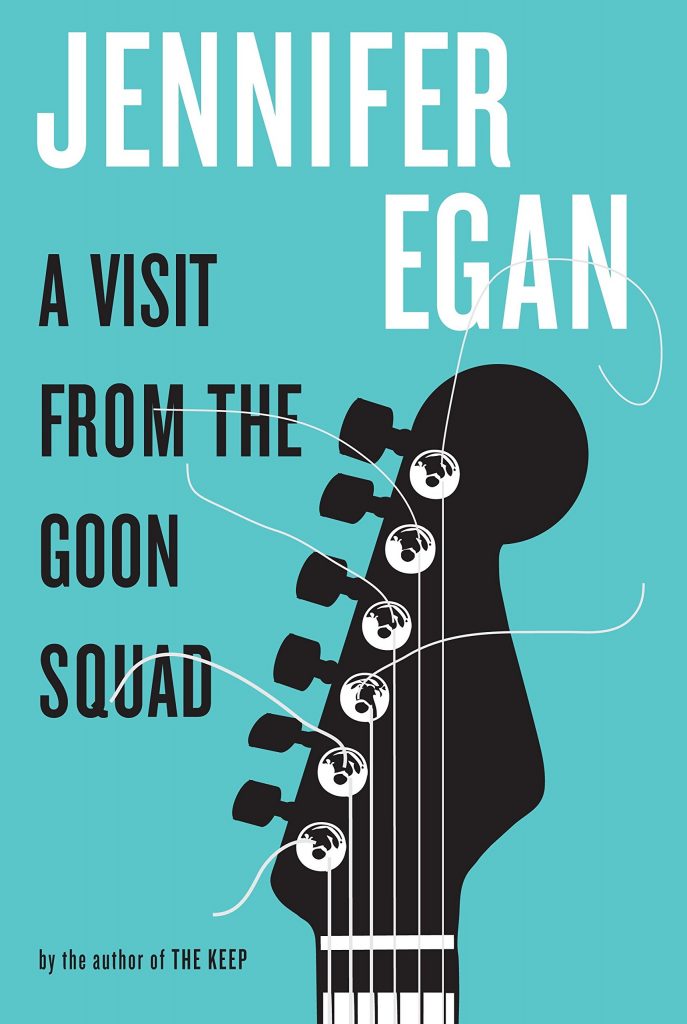Jennifer Egan, A Visit From the Goon Squad (2010)
The Top Twenty
There are some moments from A Visit From the Goon Squad that I won’t forget. In one chapter, a former PR hotshot named Dolly is tasked with reviving the public image of an African dictator known as “The General” with the help of a B-list actress named Kitty Jackson. Kitty’s job is to stand next to The General in a photo, but she ends up asking too many questions about a genocide and gets thrown into prison. Months later, it turns out, The General’s government becomes a democracy, Kitty is freed, and Dolly opens a sandwich shop. This strand of Egan’s polyphonic, funny, and often poignant book encapsulates some of her satire’s recurring ideas. In Goon Squad, a book with a large cast of characters set in a period roughly spanning the late 1970s to the 2020s, shifts in time are always jarring—they can destroy the body, corrupt memory, and blur processes of change. Nominally centered on the American celebrity industrial complex (particularly rock’n’roll in the Bay Area), Goon Squad is also very much about media “spin,” fragmented perspectives, illusory identities, and aimless materialism in a capitalist society. Though the premise may seem to indicate otherwise, the book is decidedly skeptical of nostalgic impulses. “Time is a goon,” one of Egan’s characters says. The past is nothing if not the foundation of contemporary disillusionment with its promises—promises of beauty, fame, family, and the attainment of other icons. Goon Squad earned Egan well-deserved plaudits, including the 2011 Pulitzer Prize and the National Book Critics Circle Award, and cemented her status as one the 21st century’s most insightful (and formally experimental) American writers. –Aaron Robertson, Assistant Editor

